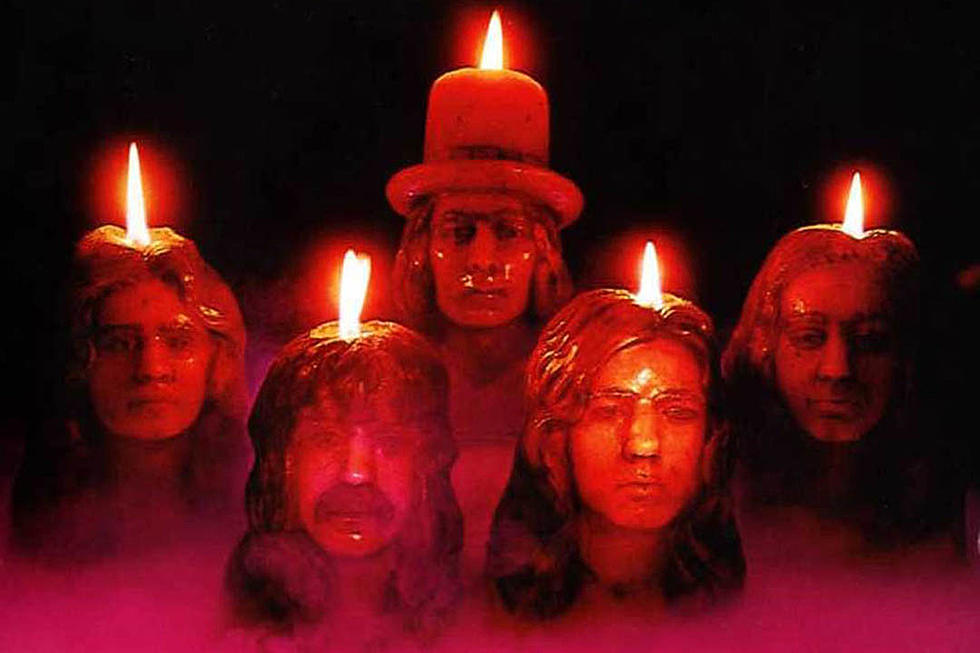
How Deep Purple Started Over With ‘Burn’
Many rock fans like to hear something a little different when their favorite artists release a new album. But when Deep Purple's eighth studio LP, Burn, came out on Feb. 15, 1974, things had changed for the band in big ways.
They had a new singer in David Coverdale, plucked from obscurity to front Deep Purple following the contentious departure of former vocalist Ian Gillan. joining him was new bassist and singer Glenn Hughes, replacing Roger Glover.
The result was a decidedly new sound for a band whose personnel conflicts had become almost as attention-getting as their songs.
"We make music for other people to listen to, and a lot of people liked Ian singing," guitarist Ritchie Blackmore told NME in 1973. "It was just that after four LPs I personally – I can't speak for the others, I don't know how they feel about it – was tired of the vocal sound of it. So, the others said they agreed, and we all got together and Ian said he wanted to resign. We thought that was fair enough, because this was our chance to get a new vocalist."
Blackmore also admitted that he wanted to quit before Coverdale and Hughes joined: "We've just progressed naturally. We haven't tried to set any barriers because we're not into that. I've just been living on and playing the music I want to. I wouldn't stay with the band if I wasn't satisfied with myself."
Listen to Deep Purple Perform 'Burn'
He placed blame for the malaise squarely at Gillan's feet. "I wanted to leave basically because I didn't think the vocal side of it was happening at all," Blackmore said. "It was quite nice but it was too poppy. Now, it's more into a blues-commercial pop thing. Our new singer has a more masculine voice, and with Glenn we hope to get a double type of feel./ You could say a Beatles feel with a hard-rock backing is the basic thing."
Blackmore viewed it all as a chance for a fresh start. "There are now two other guys involved, so it makes it more or less a new band to me," he added. "It's not Deep Purple anymore, although it's still the same name. Really, it's a completely different band."
They might have been a new band, but the reconstituted Purple didn't have to suffer through years of dues-paying before reaching arena-sized levels of success: Burn was a worldwide hit, reaching the Top 10 of the Billboard album charts in the U.S., breaking the Top 5 in the U.K., and hitting No. 1 in other corners of the globe. And the group kept going, releasing its next record, Stormbringer, later in 1974.
Of course, commercial success has never ensured lineup longevity, particularly where Deep Purple is concerned. Blackmore admittedly had one foot out the door before Coverdale and Hughes arrived, and the influx of soul and funk they brought to the band – which he derisively referred to as "shoeshine music" – pushed him the rest of the way.
Blackmore split after Stormbringer, something he half-jokingly prophesied at the end of his NME chat: "Who knows? After the LP I might be saying he's a shitty vocalist as well," Blackmore said of Coverdale. "I'm not going to say he's the best vocalist in the world, but when we heard him we thought, 'Christ, he's good.'"
Rock Hall's Worst Band Member Snubs
Jon Lord and Ian Paice Were in One of Rock’s Forgotten Supergroups
More From KKTX FM










